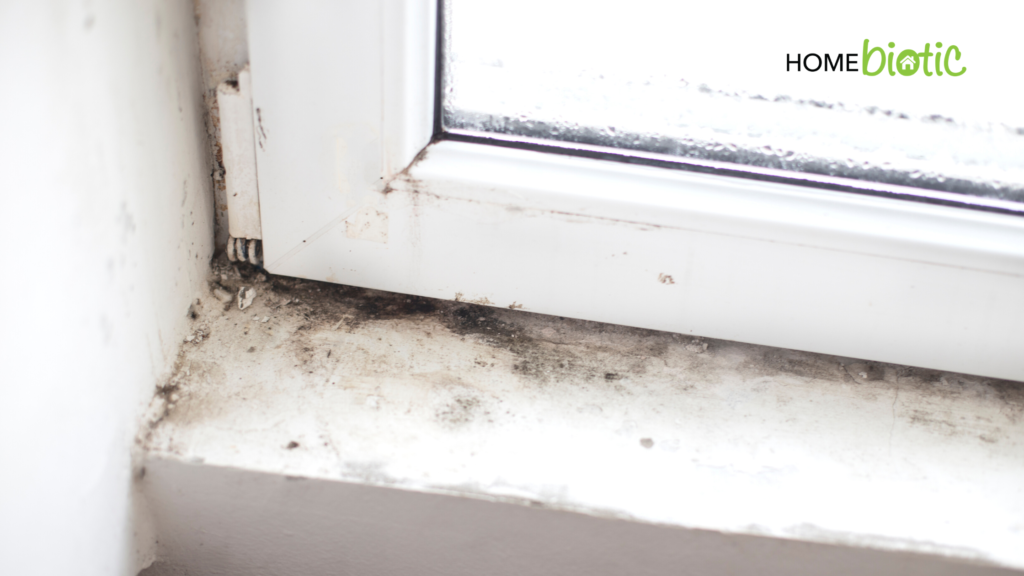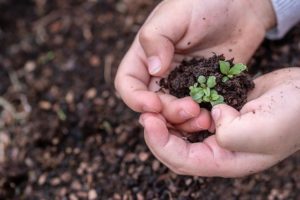
The coronavirus pandemic has many of us gripped with stress and worry over the health of our families. There’s a lot of uncertainty, and people are naturally concerned about how to protect themselves and their home environments. And now that many of us are confined to our homes, we’re wondering how to make them as safe and healthy as possible. So we have to ask: can mold exposure increase your coronavirus risk?
One thing to consider is mold growth and how it may affect us in our homes. With more people spending time at home, mold may become a problem as we are eating, cooking, showering, and cleaning more. And for those who are already prone to asthma and allergies, mold can be a more serious issue. Particularly when it comes to infections like coronavirus and its complications.
One thing to consider is mold growth and how it may affect us in our homes. With more people spending time at home, mold may become a problem as we are eating, cooking, showering, and cleaning more. And for those who are already prone… Share on X The Effects Of Mold On The Immune System
The Effects Of Mold On The Immune SystemMost people know that anyone with a compromised immune system can become very ill when exposed to mold. This is because they don’t have the right amount of immune cells in their blood to fight off a systemic fungal infection 1,2,3.
However, people with otherwise healthy immune systems can also be affected by the toxins that mold secretes. To be clear, mold on its own does not cause illness. Instead, it’s the mycotoxins that mold emits that can impair the immune system and cause illness. In other words, people who are sensitive to mold may also be slightly immunocompromised 3.
Research has shown that these mycotoxins can confuse and impair the white blood cells in our immune system, making them less able to protect the individual. Furthermore, confused white blood cells have a tendency to overreact, which accounts for many allergic reactions 1,2.
Unfortunately, asthma and allergies have increased exponentially over the past many decades 4. Also, mold growth has increased, particularly within modern homes 5.
Experts have shown clear connections between household mold and increased allergic illness and asthma attacks 3,4,5. The mycotoxins in mold have been shown to both cause and exacerbate allergies and asthma.
The concerning part is that conditions like asthma and allergies reveal an already impaired immune system. This means that people with allergies and asthma are also more susceptible to secondary infections from bacteria and viruses 6.
 Does Mold Make Us More Susceptible To Viruses?
Does Mold Make Us More Susceptible To Viruses?It’s possible that mold exposure can make us more susceptible to pathogens like the coronavirus. This is especially problematic for people who have asthma and allergies related to mold sensitivity.
Since many of us will be home more, household exposure to mold can become a problem. And if a family member has increased asthma or allergies related to mold, they are likely to have their immune system compromised 1,2,3,4. And of course, this makes them prone to develop other infections like the coronavirus.
Since many of us will be home more, household exposure to mold can become a problem. And if a family member has increased asthma or allergies related to mold, they are likely to have their immune system compromised Share on XAlso, people with asthma and allergies tend to touch their faces more through sneezing and wiping their nose or eyes. They’re also likely to cough more, which means they can also be exposing other family members to illness as well 6.
This means that while we’re at home in isolation, we need to be more thoughtful about household mold and what it may be doing to the health of our family members.

What can we do to prevent mold at home to keep us better protected against illnesses like coronavirus?
The following are some practical steps you can take now:
Mold growth depends on moisture, so be sure to turn on fans, open windows, and fix any water leaks in your home. Decreasing moisture build-up through air ventilation and reducing water issues will go a long way to keeping your home mold-free 3,7.
Cleaning requires water, but be sure not to dump large amounts of water while you clean the kitchen, bathroom, and other household surfaces. When you’re finished cleaning, make sure all surfaces have been wiped dry 3,7,8.
Also, be careful not to use large amounts of bleach or other bactericidal cleaning agents. While we may need to disinfect certain areas during the current coronavirus pandemic, we need to be careful not to overdo it. This is especially important if no one in the home is currently sick. Too much of these harsh chemicals can clear out helpful bacteria while providing free real estate for mold to grow 3,7,8.
Besides moisture, mold loves to eat cellulose-containing products such as paper, drywall, and wood fiber. Make sure you clean up any clutter that may contain these products around water faucets or potentially damp areas of your home 3.
When in doubt, do a mold test to find out if your home contains mold. If you know for sure if your home has a mold problem, then you can take appropriate actions to remove it.
Soil-based microbes are known to balance out the flora in a home environment and help keep fungi from growing unchecked. These microbes usually come in through dirt on our shoes and from being outside. So don’t be afraid to get outdoors and allow some dirt to come into your home 7.
Lastly, you can add good microbes to your home to balance out the biome of your home. Homebiotic’s home probiotic spray adds beneficial soil-based microbes to your home. These microbes naturally eliminate the cause of musty odors.

There are simple and clear actions we can take to prevent mold growth while isolated at home during this coronavirus pandemic. People should understand how mold can impact our immune system, especially those with asthma and allergies. And unfortunately, mold illness can increase susceptibility to other pathogens like the coronavirus.
Mold decreases and confuses the immune response of specific white blood cells, which causes illnesses like asthma and allergies. And for immunocompromised people, mold can be more hazardous.
As we spend more time at home and in the company of our immediate family, you may want to consider some practices to help decrease mold. This includes minimizing moisture build-up, monitoring cleaning practices, and implementing mold prevention strategies. In this way, we can protect our vulnerable family members and keep our immune systems healthy.
REFERENCES:
1. https://www.cell.com/cell-chemical-biology/fulltext/S2451-9456(19)30001-7?_returnURL=https%3A%2F%2Flinkinghub.elsevier.com%2Fretrieve%2Fpii%2FS2451945619300017%3Fshowall%3Dtrue
2. https://www.ncbi.nlm.nih.gov/pmc/articles/PMC4444319/
3. https://www.euro.who.int/__data/assets/pdf_file/0017/43325/E92645.pdf
4. https://www.ncbi.nlm.nih.gov/pubmed/28608416
5. https://www.sciencedirect.com/science/article/abs/pii/S0013935115000304
6. https://www.ncbi.nlm.nih.gov/pmc/articles/PMC4122981/
7. https://err.ersjournals.com/content/27/148/170137
8. https://letthemeatdirt.com

Gillian is a former nurse and joined the Homebiotic team as a researcher & science writer. She loves traveling the world and currently lives in Colombia.
Subscribe to our newsletter
© 2024 Homebiotic Inc. All rights reserved. | Privacy Policy | Terms of Use These statements have not been evaluated by the FDA. Homebiotic is not intended to diagnose, treat, cure, or prevent any disease.